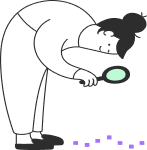The Netflix twin diet documentary “You Are What You Eat” is an interesting look at the world of diet and nutrition through the lens of identical twins going on two totally different dietary paths. We often wonder how much of our health, diet, and body composition is down to genetic vs environment, and the twin diet documentary helps us to answer some of those questions.
This eye-opening documentary delves into how food choices impact our bodies, challenging preconceived notions about diet and health. But what were the main findings, and what’s all the hype about? Here’s a quick summary – in case you don’t have time to watch the whole thing yourself!

Key Findings in the Netflix Twins Diet Documentary
So, what did ‘You Are What You Eat’ actually tell us? Here’s an overview.
1. The Experiment and Its Setup
The documentary features identical twins, each following distinct diets for a set period. One twin adopts a high-fat, low-carb diet, while the other follows a high-carb, low-fat regimen. So, as opposite as you could get!
This setup provides a unique opportunity to observe how these differing dietary approaches affect the body, considering that the twins share the same genetic makeup.
2. Immediate Health Impacts:
The twins undergo a series of medical tests before, during, and after the diet period. These tests reveal immediate changes in their cholesterol levels, insulin sensitivity, and overall energy levels.
What are the main findings of the twin diet documentary? Immediately, we see that the twin on the high-fat diet experiences a significant increase in LDL cholesterol, often referred to as “bad” cholesterol, while the twin on the high-carb diet shows signs of improved insulin sensitivity but increased fat storage.
(Worried about your own cholesterol? Check out our 7-day low cholesterol meal plan and save it to your Samsung Food app!)
Dive into our blog to find health and nutrition help

3. Long-Term Health Considerations
While the documentary highlights some immediate effects, it also touches on the potential long-term health implications of each diet. Of course, you’d want to check in after years of this to know the true impact.
The high-fat diet, although effective for short-term weight loss, raises concerns about cardiovascular health due to increased cholesterol levels. On the other hand, the high-carb diet, despite improving energy levels, poses a risk of long-term weight gain and associated metabolic disorders.
Though you shouldn’t unnecessarily cut out food groups, and low carb diets aren’t always healthier, it’s important to know that most of us should be aiming for a balanced diet with a good mixture of all the main macros (and micros!).
4. Psychological and Lifestyle Factors
Beyond the physiological changes, the documentary also explores the psychological impact of strict dietary regimens. Both twins report feeling restricted and less satisfied with their meals, indicating that extreme diets might not be sustainable in the long run. Anyone who has been on an extreme diet is probably familiar with this feeling!
This insight underscores the importance of a balanced and enjoyable approach to eating. Anecdotally, many of us have noticed a shift in diet culture, with a rise in popularity of approaches like intuitive eating and a need for people to understand the behavior behind emotional eating.

Things to Consider about the Netflix Twin Documentary
As with any study, there are often limitations to consider. Although You Are What You Eat on Netflix is a really interesting concept and a good look at the impact of different diets, there are definitely things to consider when looking at the results it found.
1. Short Duration of the Study
One of the main critiques of the documentary is the relatively short duration of the dietary experiment. Lasting only a few weeks, the study period may not be sufficient to fully understand the long-term effects of these diets. More extended studies are necessary to draw definitive conclusions about the health impacts.
2. Lack of Diversity in Participants:
The use of identical twins provides a controlled comparison and was part of the reason the Netflix documentary was so interesting. That said, it also limits the generalizability of the findings. Different individuals may respond differently to dietary changes due to variations in genetics, lifestyle, and pre-existing health conditions.
Broader studies involving diverse populations are needed to validate the results. For instance, we don’t know what the impact would have been on twins who were female, a different race, or much older (or younger) – or even those who have health conditions.

3. Focus on Extreme Diets
The You Are What You Eat twin Netflix documentary focuses on two extreme ends of the dietary spectrum, which may not reflect the eating habits of most people. A more balanced diet, incorporating elements of both high-fat and high-carb foods, might provide better health outcomes and be more sustainable in the long run.
Plus, the findings of a documentary which investigates more regular dietary differences (e.g. one person eating 5 times per day vs twice, or adding additional sources of protein to their diet) might be more applicable to every day people. Most of us don’t follow incredibly high carb diets, or very high fat diets like Keto or Atkins.
Analyze nutritional information for any recipe

4. Psychological Impact
The psychological toll of strict dieting, highlighted in the documentary, raises questions about the sustainability of such regimens. Feeling deprived can lead to increased cravings and binge eating, counteracting any potential health benefits. This aspect of the Netflix twins diet documentary stresses the need for diets that promote psychological well-being alongside physical health.
You Are What You Eat: Or Are You?
The “You Are What You Eat” Netflix documentary on twin diets offers valuable insights into the impacts of diet and eating habits on your health. It did a great job of showcasing and shining a spotlight on nutrition and the immediate changes that different dietary approaches can cause.
However, it also highlights the need for longer, more diverse studies and balanced eating habits that consider both physical and psychological well-being.
For those interested in learning more about the documentary and its findings, it’s a must-watch for anyone curious about the intricate relationship between diet and health.
Explore more on healthy eating and meal planning on the Samsung Food blog and consider using tools like our recipe nutrition calculator to make informed choices.


